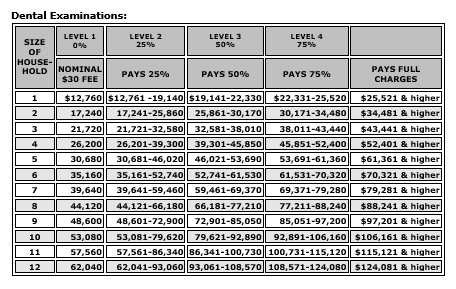The terrible aspect of her story was that she knew, from experience, that she might get substantial pain remedy for a mix of fentynl spots and breakthrough.
medication. Her HMO balked at the expense of fentynl and recommended that she was not actually injuring. A physician at the clinic informed her she was drug seeking. A Visit the website little over a year later on, a re-evaluation began it all over again. In advising her, I found out that persistent pain, simply like end-of-life pain, could be safely treated with opioids, and that the barriers for adequate discomfort management were much higher for those with chronic discomfort than those with terminal diseases. Advocacy at the https://cruzewkg282.shutterfly.com/118 systemic level may eventually make multidisciplinary discomfort management a reality at all illness and earnings levels. where is the closest pain clinic near me. In the meantime, many persistent pain victims will continue to fight it out one.
doctor and one consultation at a time-not constantly successfully - what will a pain clinic do for me. As with much of medical care, self-advocacyis definitely required. CRPS patients with neglected pain frequently feel that the doctors they consult are unfeeling, paternalistic, judgmental gate-keepers. Although this image might fit some, it is better to see the prescriber in a various light and do.
your finest to respond to his restrictions, which may consist of: lingering doubts about whether CRPS is a real syndrome poor training in discomfort management, or training against utilizing opioids for persistent pain due to the fact that, in spite of reassuring words, his state medical board takes a difficult line on physicians who recommend them. For all these reasons, doctors are frequently afraid and careful of chronic discomfort patients and they can not help but wonder which one will get him in problem. The physician who just refuses to utilize opioids for anything but sharp pain, and then just for brief periods, is not going to help you, even though the AMA ethical standards require member doctors to offer clients with "adequate discomfort control, regard for patient autonomy, and good interaction. In Florida, California and a few other states, doctors are lawfully required either to deal with pain or refer. In other states, the commitment is normally defined in the medical board policies. Specific specialty boards have adopted requirements or guidelines on using opioids to treat chronic pain. If you wish to offer your doctor with state laws and standards concerning opioid treatment, they are readily available online at http://www.medsch.wisc.edu/painpolicy/matrix.htm Prescribers who utilize opioids for discomfort management must feel safe about treating you and your pain and must conquer his convenience level constraint on dose. Let the doctor know that you are accountable and happy to comply to secure you both. Bring all the records you need to the very first check out and let him know if opioids have actually helped you in the past. Understand, nevertheless, that doctors are conditioned to see this as demanding a particular opioid; be clear that you are only notifying. Contracts are really a type.
of detailed and interactive educated consent. Good physicians will relate to some contract violations as reason to assess and discuss what certain actions mean and will comprehend that actions that look like abuse can likewise be clear signals of under-treated pain, inefficient living plans, or symptoms of anxiety or anxiety. However, you still have discomfort, call the doctor before you increase the dose and request a visit to speak about titration. If you can't manage an interim see, try to consult with him by telephone to discuss how you are feeling, or have a friend or relative call him to express issues. This requirement not imply that he believes your pain is "all in your head". Depression and stress and anxiety are nearly associated with chronic pain, as is social isolation. Numerous research studies show that a mental evaluation and even continuous mental care can considerably enhance pain management, as can other methods, such as neurocognitive feedback. If money is a problem, let him understand. It is a good idea to bring a relative or buddy who will speak to your physician about your suffering and the practical difference that discomfort medication makes because prescribers are reassured when a patient utilizing opioids has a visible assistance structure. Some pain management doctors who are anesthesiologists by training have a company predisposition toward intrusive procedures over medical management, so they might recommend that you repeat understanding blocks or costly tests even if a previous physician has already attempted them. You have no obligation to go along, particularlyif your records reflect a history of procedures. Although you do not need to give it, the unfortunate upshot might be that he declines to treat you further. Truth dictates that some physicians, even in the face of clear pain, will not want to recommend opioids. More commonly, they are prepared to recommend low dosages but have a personal comfort level limitation that might or may not be appropriate for you. This major ethical problem-the doctor putting his perceived personal safety before his patient-is a terrible situationthat can result in abandonment. A physician can desert a (how to write a proposal to pain management clinic for additiction prevention services).
Some Of Where Is Allegeny Pain Management Clinic

patient whom he considers as drug seeking or who has in some way "broke" the notified authorization agreement. Although state laws and medical ethical guidelines do not permit abrupt termination of a physician-patient relationship, a prescriber does not need to keep you in his practice. An oral message is inadequate. The physicianmust also consent to continue your look after a minimum of 1 month and he must also provide a recommendation. Nevertheless, if you are at a crucial or crucial point in your treatment, desertion by notification and 30-day care is not acceptable under typical law. In addition an un-medicated client might face a return of the pain that had been moderated by the opioids; he will practically definitely experience stress and anxiety and distress. read more Simply put, a duration without connection of care could constitute a medical emergency situation. It appears rational that rejection to treat a client up until the patient has acquired another physician( or maybe up until it ends up being clear that the client is not making a major effort to transfer care) needs to constitute desertion - how pelvic pain exam done in minute clinic. Offer with the termination instantly. If the physician remains in a center setting, ask the head of the clinic if another physician there will take control of your care. Speak to other health care experts who know you well enough to be comfy contacting us to explain that you are really in pain and are a reliable, conscientious person. Tell your prescriber you will require his assistance in finding another physician and you have a right to his help. Get your records and examine them carefully. Federal personal privacy law (HIPAA) requires your physician to supply your records without delay and to charge you no greater than his actual costs of copying. Review them for precision.
and look closely at what they say about the reason for termination. Phrases like "drug seeking "or "possibility of abuse" will harm your efforts to find another doctor. If he has actually utilized these phrases, compose him a letter, preferably through a lawyer, and use the words "abandonment," defamation "and" psychological distress "if the lawyer validates that they are appropriately used in your state.
